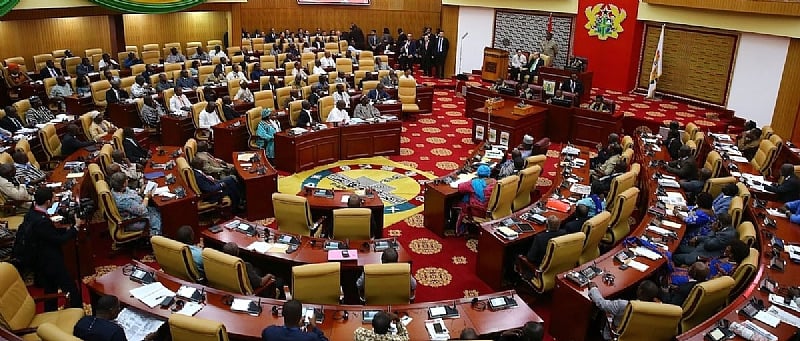The Ghanaian Parliament has recently enacted the Ghana Medical Trust Fund Bill, 2025, also known as the Mahama Cares Programme. This landmark legislation aims to establish a dedicated fund to alleviate the financial burden on Ghanaians facing chronic and life-threatening illnesses. The fund will specifically target diseases like cancer, stroke, kidney failure, and diabetes, which often require costly treatments and specialized care, placing immense strain on individuals and their families. This initiative represents a significant stride towards enhancing access to crucial medical interventions for non-communicable diseases, addressing a critical gap in the nation’s healthcare system. The programme’s focus on these specific diseases acknowledges their increasing prevalence and the significant financial challenges they pose to individuals and the healthcare system as a whole.
The bill’s journey through Parliament, however, was marked by intense debate and opposition. The most contentious point revolved around the proposed funding mechanism. The bill stipulates that 20 percent of the National Health Insurance Scheme (NHIS) levy will be allocated to the newly established Trust Fund. This provision sparked a heated exchange between the majority and minority parties. The Minority vehemently opposed this allocation, arguing that diverting such a substantial portion of the NHIS levy would cripple the scheme’s ability to provide basic healthcare services to the general population. They expressed concerns that this would weaken the NHIS, which already faces financial constraints, and ultimately compromise access to essential healthcare for millions. This opposition highlighted the delicate balance between funding specialized care for critical illnesses and maintaining the financial stability of the existing national health insurance program.
Despite the Minority’s strong resistance, the bill ultimately passed with a majority vote. Health Minister Kwabena Mintah Akandoh defended the government’s decision, emphasizing the urgent need for a dedicated fund to address the escalating costs of treating chronic and life-threatening diseases. He argued that the Mahama Cares Programme would provide much-needed financial relief to patients and families struggling to afford specialized treatments, surgeries, and medications that are often beyond the reach of ordinary citizens. The Minister positioned the new fund as a critical safety net for those facing catastrophic health expenditures, emphasizing its role in improving health outcomes and reducing financial hardship for those affected by these debilitating illnesses.
The Mahama Cares Programme promises to offer financial support covering either a portion or the full cost of treatments, surgeries, and essential medications, depending on the specific needs of each patient. This initiative signifies a move towards a more comprehensive approach to healthcare financing, recognizing that existing mechanisms may not adequately address the financial burden associated with chronic and life-threatening diseases. By providing targeted financial assistance, the program aims to improve access to life-saving treatments and enhance the quality of life for those affected. It reflects a growing awareness of the need for financial protection mechanisms within healthcare systems, particularly in the context of escalating healthcare costs.
The implementation of the Mahama Cares Programme will be rolled out in phases, allowing for a structured and controlled approach to ensure its effectiveness and sustainability. Further details regarding eligibility criteria, the organizational structure of the fund’s management, and the mechanisms for ensuring accountability will be outlined in subsequent subsidiary legislation and operational guidelines. This phased approach provides an opportunity to refine the program based on initial experiences and feedback. The development of clear eligibility criteria and robust accountability mechanisms will be crucial for ensuring equitable access to the fund and maintaining public trust in its management. The phased rollout also allows for flexibility in adapting to evolving needs and challenges as the program progresses.
The establishment of the Ghana Medical Trust Fund marks a significant development in Ghana’s healthcare landscape. While the funding mechanism remains a point of contention, the program aims to address a critical need by providing financial support for the treatment of life-threatening illnesses. The success of this initiative will hinge on the effective implementation of the program, including transparent management, clear eligibility criteria, and robust accountability mechanisms. Furthermore, careful monitoring and evaluation will be essential to assess the program’s impact on access to care, health outcomes, and financial protection for patients and their families. The long-term sustainability of the fund will depend on ongoing dialogue and adjustments based on real-world experience and evolving healthcare needs.


